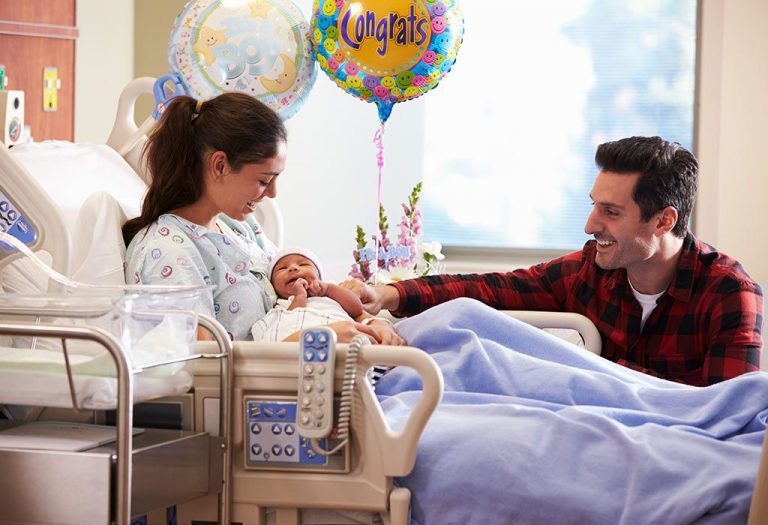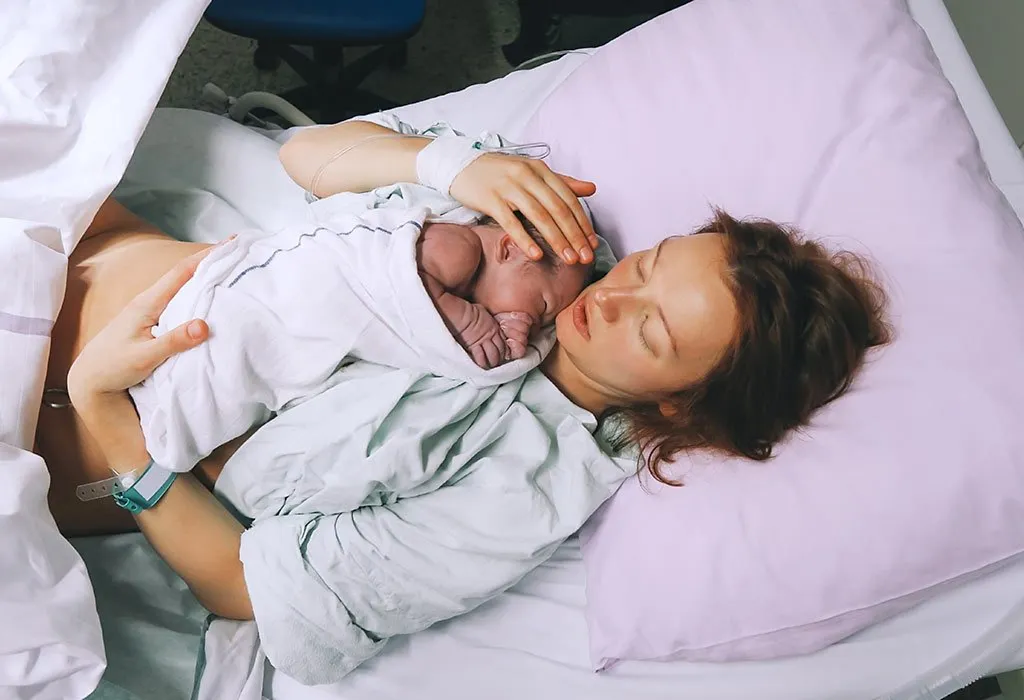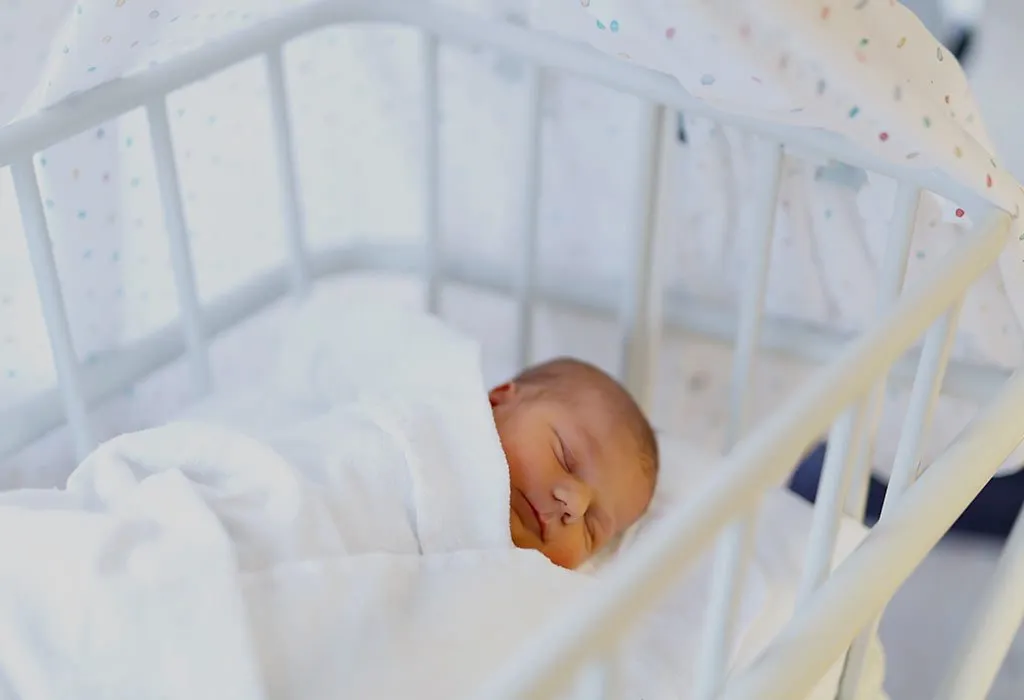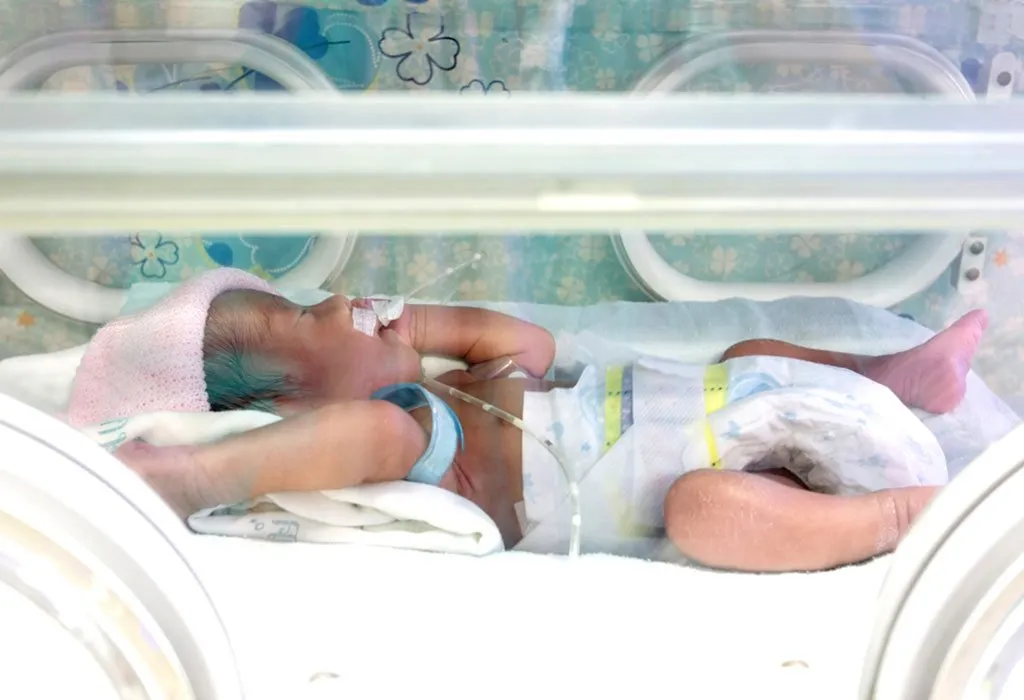How Long is Hospital Stay After Birth?
As first-time parents, you might start to worry about every aspect of the delivery. This, combined with the hormonal changes in your body, can make for an extremely stressful time. However, you would do well to be prepared and knowledgeable about what to expect when your little bundle of joy gets home. Understanding the process and knowing what lies ahead can help ease some of the anxiety. This article is about how long you will usually have to stay in the hospital after you have given birth to your baby. A common question many new parents ask is, how long do you stay in hospital after birth? The answer depends on various factors. Being informed can help you plan better and ensure a smoother transition back home.
How Many Days Should You Stay in Hospital After Giving Birth?
There is no exact number of days, as it depends upon a variety of things, like the health condition of the mother and the type of delivery it was (1). Normal hospital stay after birth also depends upon the health of your baby, as the baby is vulnerable to complications in the first few days.
Right after you have given birth, the baby will be subjected to a checkup called the Apgar Test (2). This is done to get a quick assessment of the health of your baby. The baby will quickly get to terms with life in the outside world and adapt to it within his first few hours. During this period, the baby will be checked by the midwife and the doctor. The vital organs of the baby will be checked to see whether they are functional and well, along with the eyes, hips, bottom and testicles (for boys).
The above tests are usually routine tests, and you will be required to stay in the hospital only if any complications arise in the health of your child.
How Long Do You Stay in the Hospital After Vaginal Delivery?
In the case of a vaginal or natural birth, hospital stay for the mother and baby will usually last for a maximum of 24 to 48 hours. This would require the labour to be smooth, with no complications arising at any stage. Once all the necessary tests have been carried out and no problems have been detected, mom and baby can go home safely. However, if you feel that you are not ready to go home owing to tiredness or fatigue, you could always talk to your midwife or doctor in order to extend your stay there.
How Long Do You Stay in the Hospital After a Cesarean Delivery
Many pregnant women have been anxiously wondering – “How long do I stay in the hospital after C-Section?”, and there is no concrete answer yet again. You will definitely be required to stay in the hospital for a longer period of time compared to mothers who had a vaginal delivery. Considering the enormity of the Caesarean operation, the minimum hospital stay after a C-section is around 2 to 3 days after the delivery, if not longer – although in some cases, the doctor may let you leave earlier if he deems you healthy enough (3).
For mothers who undergo this process, it will take a couple of hours for the feeling to return to their legs. Therefore, the doctor and the midwife will evaluate whether you can walk without support on your own and urinate without the help of a catheter. Also, mothers will have to be able to eat and drink without getting sick.
Requirements to Meet Before Hospital Discharge
There are a few requirements you will have to meet before you are allowed to leave the hospital.
1. Healthy Mom
It goes without saying, but the mother should be healthy without any problems like excessive bleeding and the likes before she is allowed to go home.
2. Healthy Baby
The baby should also be healthy and should have had his first poop in the hospital (4). Your baby will also be examined by doctors and paediatricians, for any congenital disorders.
3. Developmental Testing
Nurses and doctors will evaluate whether the child has the skills necessary for surviving in the world, including whether they are able to suck, swallow and breathe by themselves.
4. Skills for Moms
Similarly, mothers will need to have a few skills which will help them look after their babies effectively, and it will be up to the nurses to teach those. This includes information about general breastfeeding issues, bathing your baby and changing his diaper, among many other things.
5. Registration
The hospital registrar will also stop by and ask you to register the baby, in order to get the birth certificate for the child- you can still do this without having to have chosen a name for the child.
Complications That Can Make You Stay a Little Longer
There are a few situations in which you may be required to stay a little longer (5)–
1. Heavy Bleeding
The mother should not soak more than a pad (maximum of two) in an hour for it to be called normal bleeding. Nurses may also massage your uterus to stop contractions and bleeding.
2. Blood Pressure
The blood pressure of the mother may drop owing to the loss of blood during the delivery – this will also be monitored by the nurses during labour.
3. Low Blood Sugar in the Baby
If the mother has gestational diabetes, it can result in the baby having low blood sugar after birth – this will have to be stabilized before you are allowed to go home.
4. Meconium Delivery
If the baby poops during delivery, he may end up inhaling some in the process- this may cause problems in getting enough oxygen. Some children may even need extra, suctioned oxygen before the condition is stabilized.
5. Birth Weight
If the weight of the baby is less than 2 kilograms, he will be kept in the hospital until he gains enough weight to be taken home.
FAQs
1. Can the length of hospital stay be extended for premature babies?
Premature babies often require specialised care, which may extend the hospital stay (6). Depending on the baby’s health and development, the stay could range from a few extra days to several weeks in the neonatal intensive care unit (NICU).
2. What happens if you choose a home birth but need hospital care later?
If complications arise during a home birth and hospital transfer is required, the length of stay will depend on the nature of the issue. For example, postpartum haemorrhage or infection could result in a longer hospitalisation than initially anticipated.
There is no specific, uniform time period after which mothers will be allowed to go home – this depends upon a lot of variables. However, you can always talk to your doctor about your desire to stay in or leave the hospital after delivery and see if the hospital accommodates your wishes.
References/Resources:
1. American Academy of Pediatrics – Hospital Stay for Healthy Term Newborn Infants
2. Nemours Kids Health – What Is the Apgar Score?
3. American College of Obstetricians and Gynecologists – FAQs: Cesarean Birth
4. Cleveland Clinic – Meconium
5. Mayo Clinic – Postpartum complications: What you need to know
6. American Academy of Pediatrics – Caring for a Premature Baby: What Parents Need to Know
Also Read:
Postnatal Infections
Postnatal Depression
Newborn Baby Care Immediately After Birth
Postpartum Diet – What foods to eat & avoid after delivery?
Was This Article Helpful?
Parenting is a huge responsibility, for you as a caregiver, but also for us as a parenting content platform. We understand that and take our responsibility of creating credible content seriously. FirstCry Parenting articles are written and published only after extensive research using factually sound references to deliver quality content that is accurate, validated by experts, and completely reliable. To understand how we go about creating content that is credible, read our editorial policy here.







































